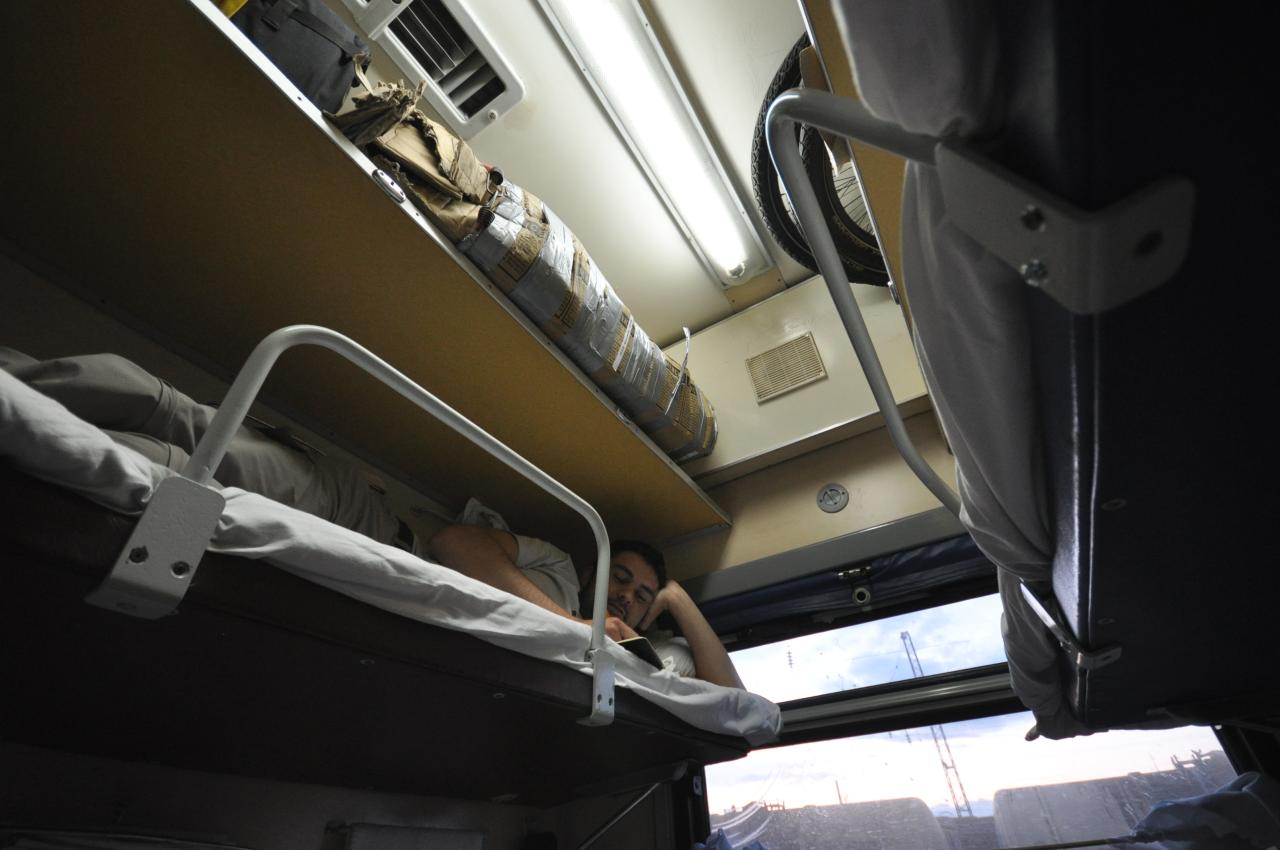As I write, it’s 5:30am in Ulaanbaatar, the capital of Mongolia. Through the window of my host’s flat I can see the pale orange of the morning sun picking out the shapes of the new industrial complexes and apartment blocks that are sprouting at great speed. After a couple of years they will be crumbling, plaster falling from the walls; victims of overzealous development combined with corner-cutting for profit maximization in the name of the free market.
Behind the city skyline, a range of low mountains is silhouetted against the sky. They will be my target for the day. Tonight I’ll be sleeping under the stars — an invigorating prospect. I’ve spent about 5% of my life camping and I never tire of it.
It was a 15-day overland journey just to get here. It’s funny to think that for many, 15 days would be a year’s worth of foreign holidays. On the ferry from Trabzon to Sochi, I tried to work out how Russia fitted into my concept of the world. I’d never been before, but I’d spend the best part of two years living amongst the fallout of the Russian century, with all its faded grandeur, reminiscing of the days of denial and plenty, and the folly of post-Soviet opportunism.
But my first impressions of Sochi were far from what I was trying to avoid expecting. I immediately felt that I was in a place where the system appeared to benefit more than just the ultra-rich. People looked healthy, middle-class, distracted by whimsy and were far from struggling to eke out a living.
I’d made friends with an Armenian woman on the boat. She lived in Rostov-on-Don, Russia’s so-called ‘father of crime’, and was heading for the railway station. I shared a taxi with her and she sorted out my train ticket for Moscow — a great help, as my Russian extended to “Good day, I don’t understand Russian, thank you, goodbye”. While I was waiting I got chatting to one of the station policemen. He also turned out to be Armenian. The train’s guard was Armenian, the baggage porter was Armenian and refused to believe that I spoke his native language, and I walked past another passenger who was on his mobile phone, speaking Armenian (“…and it was five thousand dollars! Can you believe it?!?”). Between Yerevan and Moscow, travelling through four countries, I spoke more Armenian than any other language.
Andy came to meet me in Moscow. He’d travelled by bus from London via Dortmund and Riga and had arrived the previous day. We booked tickets on the weekend train to Ulan-Ude, 5,600km away in Buryatia, Siberia. The four-day journey in 3rd class cost just 45 pounds — about the same as London to Leicester — and included a bed, free hot water and the entertainment of an assortment of enigmatic local characters. Chores over, we met up with some local Muscovites, wandered randomly through the streets of the gigantic capital, got repeatedly lost on the metro and stocked up on the cheapest instant noodles we could find.
The Trans-Siberian train is a bit of a misnomer. There are loads of trains plying all or part of the classic route to Vladivostok, including variants heading for Mongolia and China and other Russian destinations. It is very difficult for an islander such as myself to grasp the concept of a country which spans no less than nine timezones and has swallowed countless independent states over time along with their inhabitants, customs and languages. Russians have almost as much difficulty travelling in Russia as foreigners do. Imagine you lived in London and decided to go to Edinburgh, for example, but discovered that you weren’t allowed to stay for more than 30 days outside London without special permission, and that you had to register your presence in any town or city outside London in which you spent more than 3 days at a time!
My train journey passed in a blur of flat, unchanging swamp, steppe and woodland. The Trans-Siberian railway is itself an intensely monotonous thing. The only variety came on the second morning, when the climate had undergone a drastic change overnight. When we’d left Moscow it had been 28 degrees and we’d slept with the window open. In the dim grey light of that morning, stepping off the train to stretch our legs, we were surprised to find that it was ever-so-lightly snowing.
Being the only foreigners amongst the 3rd class wagons we attracted a fair amount of attention, and were kept occupied by a variety of elaborately mimed conversations. All was going well until the final night, during which I was unable to sleep. Our stop was scheduled at 3:47am, and it arrived on the dot, being as it was a Russian train, the stalwart mode of transport for cross-country journeys, highly punctual and reliable.
Ulan-Ude was another chore-stop, this time for Mongolian visas which were luckily quick and easy to obtain. It would have been nice to have spent some more time in Russia, but I decided that it would be better to do so when I had an Armenian passport and didn’t have to worry about a visa. Before long we were on the little Taiwan-made bus, bouncing along the pot-holed road towards the Mongolian border and — finally — the start of the ride itself.





Something to add?